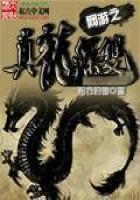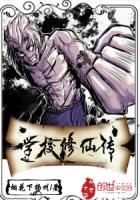But Barney had become oblivious to her words and glances. He moved away as in a dream to make ready for the home going of his party, for soon the dancers would be at Sir Roger's. Nor did he waken from his dream mood during the drive home. He could hear **** chattering gaily to Margaret and his mother of his College experiences, but except for an occasional word with his father he sat in silence, gazing not upon the fields and woods that lay in all their moonlit glory about them, but upon that new world, vast, unreal, yet vividly present, whose horizon lay beyond the line of vision, the world of his imagination, where he must henceforth live and where his work must lie. For the events of the afternoon had summoned a new self into being, a self unfamiliar, but real and terribly insistent, demanding recognition. He could not analyse the change that had come to him, nor could he account for it. He did not try to. He lived again those great moments when, having been thrust by chance into the command of these fifty mighty men, he had swung them to victory. He remembered the ease, the perfect harmony with which his faculties had wrought through those few minutes of fierce struggle. Again he passed through the awful ordeal of the operation, now holding the light, now assisting with forceps or cord or needle, now sponging away that ghastly red flow that could not be stemmed. He wondered now at his self-mastery.
He could see again his fingers, bloody, but unshaking, handing the old doctor a needle and silk cord. He remembered his surprise and pity, almost contempt, for big Tom Magee lying on the floor unable to lift his head; remembered, too, the strange absence of anything like elation at the doctor's words, "My boy, you have the nerve and the fingers of a surgeon, and that's what your Maker intended you to be."
But he let his mind linger long and with thrilling joy through the interlude in the dance. Every detail of that scene stood clearly limned before his mind. The bare skeleton of the new harp, the crowding, eager, tense faces of the listeners, his mother's and Margaret's in the hindmost row, his brother standing in the centre foreground, the upturned face of the singer with its pale romantic loveliness, all in the mystery of the moonlight, and, soaring over all, that clear, vibrant, yet softly passionate, glorious voice.
That was the final magic touch that rolled back the screen and set before him the new world which must henceforth be his. He could not explain that touch. The songs were the old ****** airs worn threadbare by long use in the countryside. It was certainly not the songs. Nor was it the singer. Curiously enough, the girl, her personality, her character, worthy or unworthy, had only a subordinate place in his thought. He was conscious of her presence there as a subtle yet powerful influence, but as something detached from the upturned face illumined in the soft moonlight and the stream of heart-shaking song. She was to him thus far simply a vision and a voice, to which all the psychic element in him made eager response. As he drove into the quiet Mill yard it came upon him with a shock of pain that with the old life he had done forever. He felt himself already detached from it. The new self looking out upon its new world had shaken off his boyhood as the bursting leaf shakes off the husks of spring.
As ****'s gay exclamation of delight at sight of the old home fell upon his ear a deeper pain struck him, for he vaguely felt that while his brother still held his place in the centre of the stage, that stage had immeasurably extended and was now peopled with other figures, shadowy, it is true, but there, and influential. His brother, who with his mother, or, indeed, perhaps more than his mother, had absorbed his boyish devotion, must henceforth share that devotion with others. Upon this thought his brother's voice broke in.
"What's the matter, old chap? Is there anything wrong?"
The kindly tone stabbed like a knife.
"No, no. Nothing, ****."
"Yes, but there is. You're not the same." At the anxious appeal in the voice Barney stood for a moment steadily regarding his brother, for whom he could easily give his life, with a troubled sense of change that he could not analyse to himself, much less explain to his brother.
"I don't know, ****--I can't tell you--I don't think I am the same." A look of startled dismay fell swiftly down upon the frank, handsome face turned toward him.















